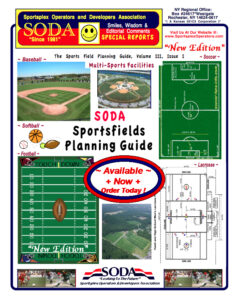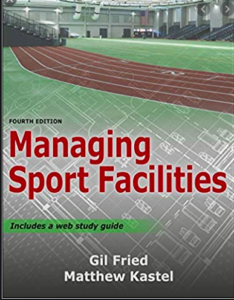George Hancock, a reporter for the Chicago Board of Trade, presumably invented softball in 1887. It was labelled “indoor baseball,” but it moved outdoor in spring 1888. Also called mushball and kittenball, the sport changed officially to softball around 1920. Softball includes three disciplines: fastpitch, modified fastpitch, and slow pitch.
Softball was organised in the United States in 1933 with the Amateur Softball Association of America (ASA). Men first played the sport, but now it is more prevalent among women, growing in popularity across the US and the rest of the world. The World Baseball Softball Confederation (WBSC) lists 69 countries and territories in its standing. And the International Softball Association lists 122 national federations as members.
Softball is currently an Olympic event for women. It first became an Olympic event for the 1996 games, but softball and baseball dropped after the 2008 Olympic games. The Olympics placed softball and baseball back in the games for the 2020/2021 games in Tokyo, Japan. Their inclusion for the 2024 games is uncertain.
US service members played a key role in introducing softball outside the US to other countries. Since the official softball organisation launched in 1933, many organisations have formed and many competitions have been rolled out. They include the International Softball Federation (ISF) in 1965; the first Fastpitch World Championship for Women in 1965; the first World Competition for Junior Men and Women in 1981; and the Slow-pitch World Championship in 1987.
In the VI
Closer to home, Gaston Penn learned about softball in St. Thomas. He is widely credited with bringing the game to the VI. Randolph “Mose” Malone and Archibald Francis were instrumental in engaging women in the sport in the VI. Softball was first played in Road Town at the Old Recreation Ground, now the E. Walwyn Brewley Field.
In the early days, equipment was in short supply, and the players had to improvise. For example, bats were fashioned of branches from trees in the nearby hills, and gloves were prized possessions that were generally shared. Some fields were rocky. For practice, broomsticks and other pieces of wood were used to hit rocks, sponges and tennis balls.
I remember hitting rocks at Major Primary School and sending a sharp liner into Leslie Malone’s taxi door. Hearing the impact, I dashed for cover and concealment, but the fellows ratted me out. Mr. Malone was heated, but it was all good in the end, even after a scolding at home.
Nonetheless, a strong passion for the game ensued, and the game spread like wildfire throughout the territory’s communities. The villages embraced, owned and supported their village teams. The village supporters were the 10th man when their teams were playing. They turned up and turned out to robustly support their teams. Each village and geographical area had at least one team.
Teams included the Tigers, Marlins, Astros, Jets, Twins, Bears, Animals and Vets in Road Town; the Hot Shots and Byrds in Sea Cows Bay; the Hunters in Huntums Ghut; the Blue Jays in Cappoons Bay; the Blue Wings and Red Legs in Baughers Bay; the Hawks, Roots, Atoms, Knights, Rays and Mars in East End/Long Look; the Clippers and Royals in Brewers Bay; and the Rockets in Belle Vue. Women’s teams included the Warriors, Angels, Amazons, Hawks and Lady Braves. Clearly, this list is incomplete, for many teams may have been inadvertently left out.
School teams
Moreover, in addition to league play, the government introduced softball into primary and secondary schools. At Major Bay Primary (now Willard Wheatley), we didn’t have uniforms, so we would use white t-shirts with our name and school written on them in marker. As kids, softball was the primary sport, and we played every chance we got.
Further, the school teams were the feeder/minor league of sorts for the league teams, keeping the sport solid and vibrant.
Reaching back into the old memory bank, I remember Major Bay Primary playing against a town team. Either Joseph “Scruff” Percival or Austin Todman was catching for the town team, and I galloped towards home plate, trying to score. A rough tag was applied at the plate, throwing me towards the trees behind the plate, or so Mr. Todman and Butchie Eddy narrate the story. Oh, the good old, fun days of softball.
Stars players
Mario “Black” Connor, brother of Elmo “Equalizer” Connor, was the best overall complete player in VI softball history. He was a genuine all-rounder: He hit, pitched, and fielded equally well, and played every position skilfully.
Other top tier players include Aston “Flag” Barronville (who effectively made the transition from cricket to softball), David “Jacky” Todman (who completed the same transition), Rufus “Hook” Scatliffe, Irvin “Fletcher” Scatfliffe, Ishmael Scatliffe, Rupert Smith, Elton “Elibit” Smith, Elmo “Equalizer” Connor, James “Butchie” Eddy, Rene “Panchie” Julius, Eric “Hippie” Matthias, Raymundo “Mundo” Boynes, Clinton “Butch” Walters, Jerome “Lolla” Parson, Edwin “Boss” Hodge, Freddy “Jerado” Matthias, Nichol Rhymer, Roy “Panhandle” Hill, Dolph Cline, Glen Industrious, Mac Hodge, Roy “Picko” Pickering, Valence “Mantle” Malone, Rufus “Sleepy” Malone, Marvin Malone (who made the transition from cricket to softball), Elroy Franklyn, Clement “Tommy” Turnbull, Ralston “Rabbit” Daly (popularised the “in-shoot” pitch), Frank Daly, David “Flopper” Matthias, the Mercer brothers (Charles, Sam, Raymond “Mahassa,” and James “Hanbrook”), Edward “Batman” Francis, Bert “Big Man” Henley, Kermit “Web” Frett, Nolan “Dickie” Davies, Neville “Sheep” Smith, Allen “Woodrow” Smith, Raymond “Jackson” Smith, Sylvester “Bucker” Johnson, Ely Henley and Elton “Uppy” Leonard.
Female players of note included Doris “Dopu” Scatliffe, Eda Ham, Eva Simmonds, Lydia Pickering, Leola Todman, Ivana Monsanto, Bernice Smith, Gracie Hodge, Jennifer “Mela” Johnson, Patsy Thompson, Adina Nibbs, Jelisha Potter, Che’Vaunne Richardson, Bria Smith, Leonel George, Dorothy Durante, Kennisha Powell, and Pearline Scatliffe-Leonard.
This list is incomplete and may create some active discussion and controversy regarding who was included or left off. It is open for debate. It is important to note that women have had the same passion for the game as men.
Executives
Moreover, the following are just a few of the important game executives. Leading the pack is E. Walwyn “GM” Brewley, after whom the Road Town softball facility is named. He dedicated more than 40 years to softball as a player, statistician, official scorer, announcer, treasurer, vice-president, and VI Amateur Softball Association president. The International Softball Association inducted him into its hall of fame for his contributions to developing softball in the VI. Further, as the VI softball president, he was ably supported by Eileene “Ms. P” Parsons and Juliette Penn, among others. Ms. P, a cultural icon, is also a deep repository of VI softball information. Further, displaying exemplary leadership, the GM continued to serve as chief cook and bottle washer for softball even while serving as a legislator, minister of communications and works, and opposition leader.
Baseball in the VI
VI residents played baseball at a relatively low level. Nonetheless, baseball was a popular sport. Most Virgin Islanders were either a Los Angeles Dodgers or New York Yankees fan (I was a Dodgers fan). There were a few exceptions, such as Walford “Mets” Hodge (NY Mets); Vincent “Old Father” O’Neal (San Francisco Giants); and Rundell “Skin Back” Hunt (Atlanta Braves).
During the Major League Baseball regular season, All-Star Game and World Series, every manjack had a transistor plastered to his or her ear enjoying the baseball commentary. The sweet commentary could be heard pouring out from every nook and cranny of homes, the ballpark, bars, domino tables, under trees, boats and so on.
The game was so popular that children played a game with baseball cards. For example, players held a card about three to four feet above a wall or tree and dropped it, and if dropped on another card, you won that card. The serious collectors didn’t use the cards of superstar players in the game; players cherished these cards.
Stars of the game included Willie Mays, Willie McCovey, Willie Stargell, Willie Davis, Sandy Koufax, Don Drysdale, Maury Wills, Tommy Davis, Juan Marichal, Roberto Clemente, Reggie Jackson, Hank Aaron, Rickey Henderson, Elston Howard, John Roseboro, Dave Winfield and so on. I’m confident and convinced that given the demonstrated talent, skill, and prowess in softball and with training and the opportunity, many VI residents would have had successful careers in Major League Baseball.
Rise and decline
Softball burst onto the VI scene around the mid-1950s. As noted earlier, VI residents developed an immediate passion for the game. With little formal instruction and sheer talent, skill and perseverance, VI players played with a flair and took to softball like ducks to water. They were naturals. Consequently, the players and the game grew to a highly competitive level. Mr. Brewley — the battle-hardened voice of all things softball in the VI and a lived, walking encyclopaedia of VI softball players and stats — indicated that the VI, though small, was a force in the Caribbean and Central American regions and beyond. Cuba was the toughest competition in the region for the VI.
The VI placed 12th in the ISF Men’s World Championship in Saskatoon, Saskatchewan, Canada, in 1988. It played Cuba in the 1987 Pan Am Games for the bronze medal and lost 4-3.
Nonetheless, despite the VI’s peak, its progress has dropped precipitously in recent times. The sport is now dying on the vine with a slight pulse. And without urgent action, softball will die a painful death due to neglect.
Contributing factors
What are some of the contributing factors to the steep decline? From my vantage point, they include the following:
- a) centralising the game in Road Town, reducing village engagement and participation;
- b) competition from other sports like basketball for talent from an already small and limited talent pool;
- c) the decline of softball in primary and secondary schools;
- d) the lack of a structured and reliable feeder system for a higher amateur softball league;
- e) a declining pitching reservoir due to older pitchers retiring, some top pitchers emigrating, and a lack of effective tutoring mechanisms for potential, interested pitchers; and
- f) public underfunding for upgrading and modernising facilities.
Revitalising the sport
Softball rocketed to the top in the past and can do so again. Indeed, it can become the de jure, not just the de facto, national sport. The following are some suggestions for revitalising and breathing life back into the sport.
- a) government committing and allocating appropriate funding to invest in modernising softball fields across the territory;
- b) decentralising the sport from its current centralisation in Road Town and siting it in villages to the maximum extent possible and practical;
- c) participating in more local, regional and international tournaments;
- d) engaging more public participation in the sport;
- e) recruiting former players participating in the game;
- f) constructing and maintaining quality facilities on sister islands;
- g) increasing the number of leagues and tournaments;
- h) recruiting local and external experts to conduct training on softball fundamentals, such as pitching, hitting, fielding and so on;
- h) establishing a hall of fame;
- i) placing softball back in primary and secondary schools;
- j) encouraging and incentivising employers to compensate employees while engaged with the national team;
- k) exploring health insurance opportunities for players engaged in official league play and with the national team;
- l) recognising, rewarding and celebrating the national team;
- m) establishing Little League (B-League) as a feeder for the A-League;
- n) establishing a senior league for ages 55-plus; and
- o) establishing a public education and outreach programme.
Investment
Moreover, if the VI wants to be world-class and brag about top-tier competitive softball at a high level, it must act, look, behave and invest in being world-class by investing in world-class, state-of-the-art facilities. In large, advanced countries, sports are, for the most part, the province of the private sector. However, the VI is a small developing territory, and government must be the fulcrum in revitalising softball. The VI boasts of having a $1 billion gross domestic product and an operations and maintenance budget of around $400 million, so surely it can effectively afford to invest in constructing, operating and maintaining world-class softball facilities.
Given the current makeup of the House of Assembly (where many members now have a softball pedigree), many residents were giddy about softball getting more attention, support, and a strong resource shot in the arm. However, that ship has not sailed, so softball supporters are hopeful.
The VI is a small fry in the softball universe, but it can be a considerable force to reckon with, as it proved in the past. And with robust planning, it can rebound to its past glory, swimming with big fish in the softball ocean. The big question is if the decline of softball is symbolic of what is on the horizon for the VI ?
- ~ ~ ~ ~ ~ ~
. . . . . . . . . . . . . . . . . . . . . . . .
We Can Save You Money In 2021 !

* ( 16 Different Amateur Sports ) *
( Teams, Officials, Tournaments, & Facilities ) *
1-800-622-7370
. . . . . . . . . . . . . . . . . . . . . . . .
www.sadlersports.com/soda
. . . . . . . . . . . . . . . . . . . . . . . .
“Proudly Serving The USA/Canada
Since 1981”

www.sportsplexoperators.com
. . . . . . . . . . . . . . . . . . . . . . .
 . . . . . . . . . . . . . . . . . . . . . . . . . . . . . . . . . . .
. . . . . . . . . . . . . . . . . . . . . . . . . . . . . . . . . . . “Proudly Serving The USA/Canada
Since 1981”
. . . . . . . . . . . . . . . . . . . . . . . . . . . . . . . . . . .
 [[ Available In SODA Store Online !]]
[[ Available In SODA Store Online !]]** “STAY SMART ** STAY SAFE” **
-
** STAY HEALTHY **




0 Comments